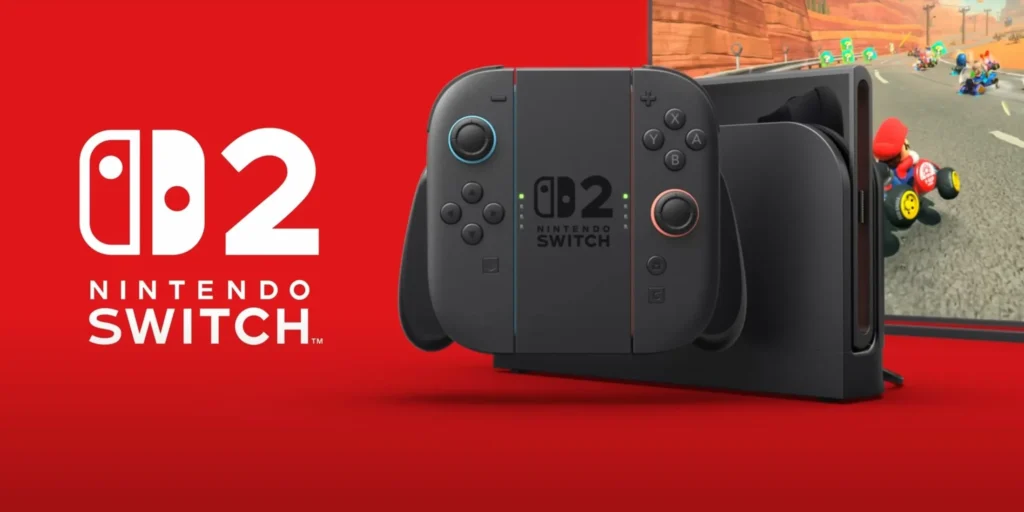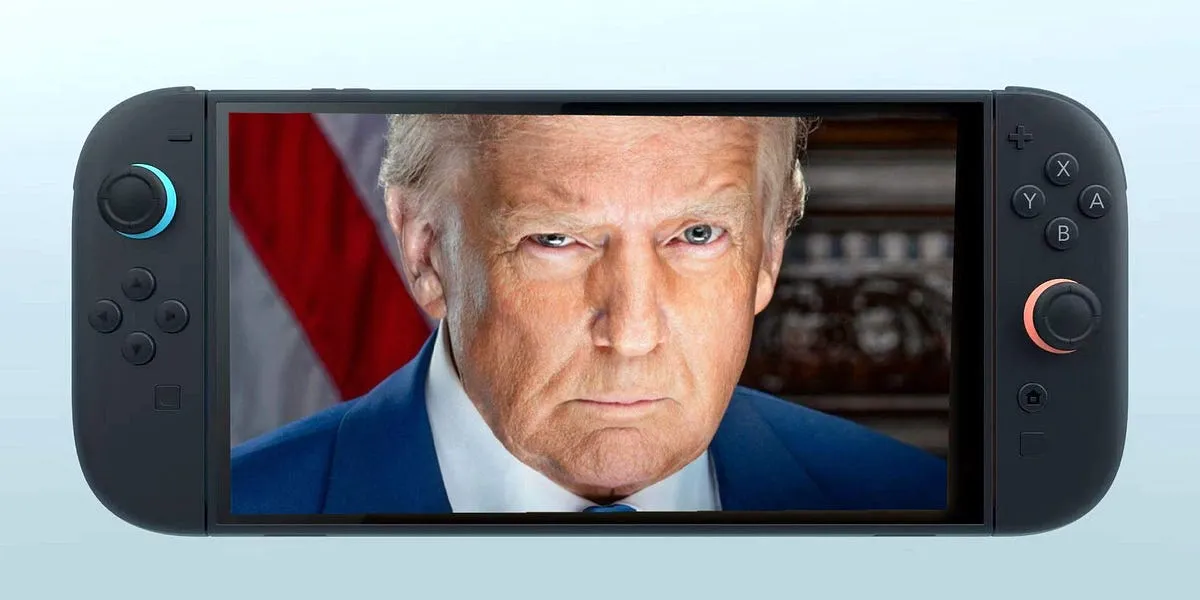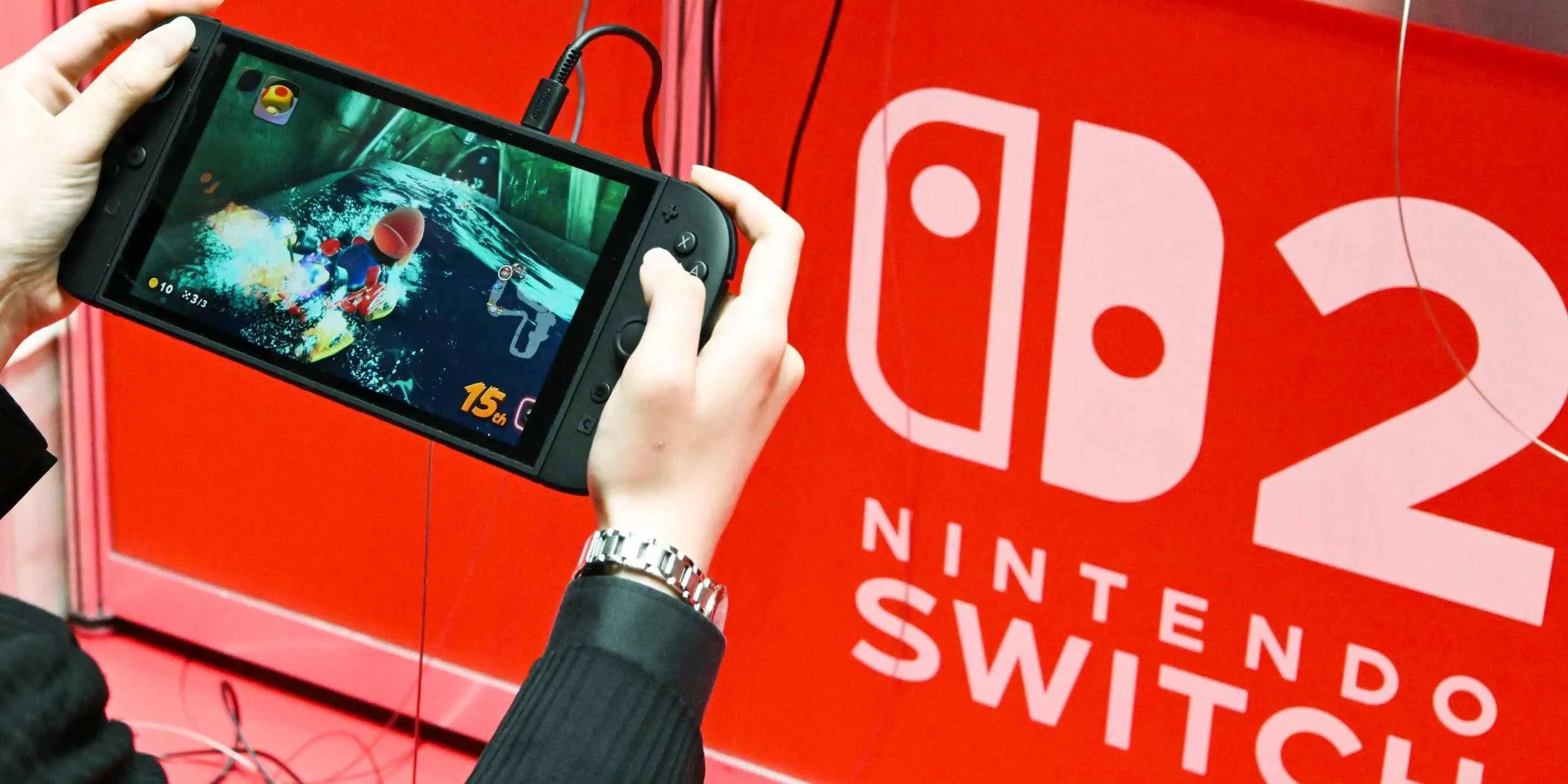
Nintendo fans, the wait is nearly over! Preorders for the highly anticipated Nintendo Switch 2 are officially set to begin on April 24, 2025. And while the gaming world remains on edge due to the recent tariff announcements by President Donald Trump, the console itself will not see a price increase. The Nintendo Switch 2 will maintain its original price of $450 at launch, and the Mario Kart World Bundle will also stay at $499.99.

But it’s not all good news for Nintendo enthusiasts—accessory prices are expected to climb due to the shifting market dynamics. In an official statement, Nintendo confirmed that accessories would experience price adjustments as a result of the evolving tariff situation.
Nintendo Acknowledges the Impact of Tariffs on Product Prices
“We apologize for the retail preorder delay and hope this reduces some of the uncertainty our consumers may be experiencing,” Nintendo said in their statement, addressing the growing concerns among fans.
Earlier in April, just days after revealing the Switch 2 in New York City, Nintendo made the surprising decision to delay preorders. “We are actively assessing the impact of tariffs and evolving market conditions,” said Doug Bowser, Nintendo’s President of America, in an interview with WIRED. It seems the company has been carefully evaluating the economic landscape before finalizing its pricing structure for accessories, which could be subject to further adjustments in the near future.
Rising Costs for Switch 2 Accessories
While the console remains unchanged, accessories will feel the brunt of the new tariffs. The Pro Controller, for example, which was initially priced at $79.99, will now retail for $84.99. The Joy-Con 2, once priced at $89.99, will now be available for $94.99. Other accessories, like the Dock Set and Camera, will also see small price hikes, reflecting the ongoing market shifts.
These adjustments come after President Trump’s announcement on April 2, 2025, introducing sweeping tariffs, including a 10 percent baseline tariff on goods from all countries and much steeper tariffs on Chinese imports. While electronics like the Nintendo Switch 2 are exempt from these tariffs, other products like accessories and peripherals are subject to increased costs.
A Closer Look at the New Prices for Nintendo Switch 2 Accessories
Here’s a breakdown of the new pricing for the Switch 2 and its accessories:
- Nintendo Switch 2 Console: $450 (unchanged)
- Nintendo Switch 2 + Mario Kart World Bundle: $500 (unchanged)
- Mario Kart World: $80 (unchanged)
- Donkey Kong Bananza: $70 (unchanged)
For accessories:
- Nintendo Switch 2 Pro Controller: $85 (previously $80)
- Joy-Con 2 Pair: $95 (previously $90)
- Joy-Con 2 Charging Grip: $40 (previously $35)
- Nintendo Switch 2 Dock Set: $120 (previously $110)
- Samsung microSD Express Card (256 GB): $60 (unchanged)
Nintendo has also noted that more price adjustments may occur depending on market conditions. This means that while some products maintain their original prices, others will inevitably be affected by the larger economic forces at play.
Global Tariffs and Their Impact on the Gaming Industry

The tariff changes are not exclusive to Nintendo; other major gaming companies like Sony and Microsoft are also feeling the effects. Although neither company has a new console on the horizon, both will likely experience increased production costs for their existing hardware due to reliance on Chinese manufacturing.
Industry analyst Daniel Ahmad points out that these price hikes could have far-reaching consequences for players. “Even a 10 percent tariff would make purchasing consoles and games less attractive to players,” Ahmad says. The added costs could deter gamers from upgrading their systems or purchasing new games, as inflation and economic uncertainty take their toll on consumers’ wallets.
The Rise of Digital Games Amid Physical Game Price Hikes
Another significant consequence of the tariffs is the impact on physical game prices. While digital games will remain unaffected, physical copies could experience price increases depending on where they are manufactured. Nintendo, for instance, makes most of its games in Japan, while Xbox relies on Mexico for some of its manufacturing.
With the potential for higher physical game prices, more gamers may shift toward digital-first purchases. This shift could further strengthen the digital storefronts of console makers like Nintendo, Sony, and Microsoft, which would see a boost in their online game sales.
The Economic Fallout and Potential for More Layoffs
Beyond the direct impact on consumer pricing, the tariff situation could further strain the gaming industry’s workforce. For the past few years, the industry has already been grappling with widespread layoffs, and the uncertainty surrounding the tariffs only exacerbates the problem.
“If retail prices soar, players are more likely to embrace digital-first media and ditch any remaining reliance on physical games,” says analyst Piers Harding-Rolls. “That’s a benefit to the console platforms as their storefronts are the key sales channel for games on their platforms.”
However, as companies work to navigate these new economic challenges, the strain on corporate sentiment and investment behaviors may result in even more layoffs, reversing some of the recovery efforts the industry had made in recent years.
